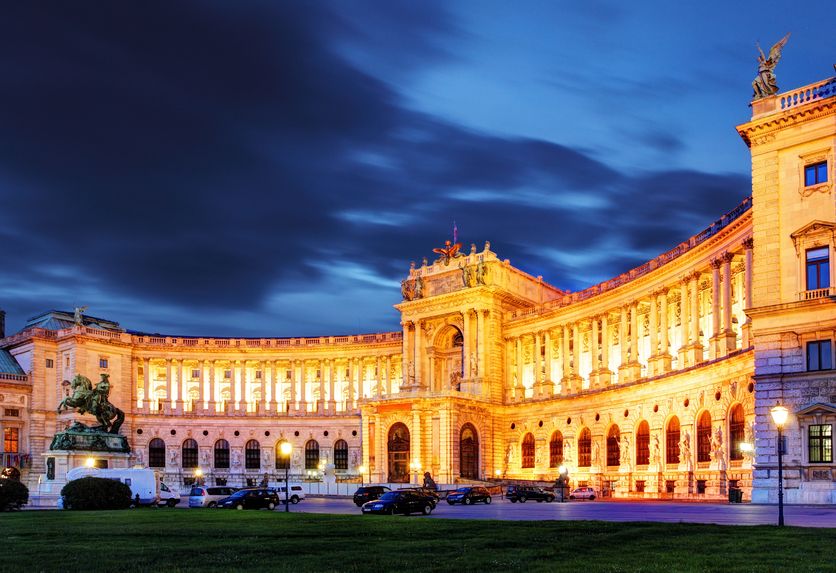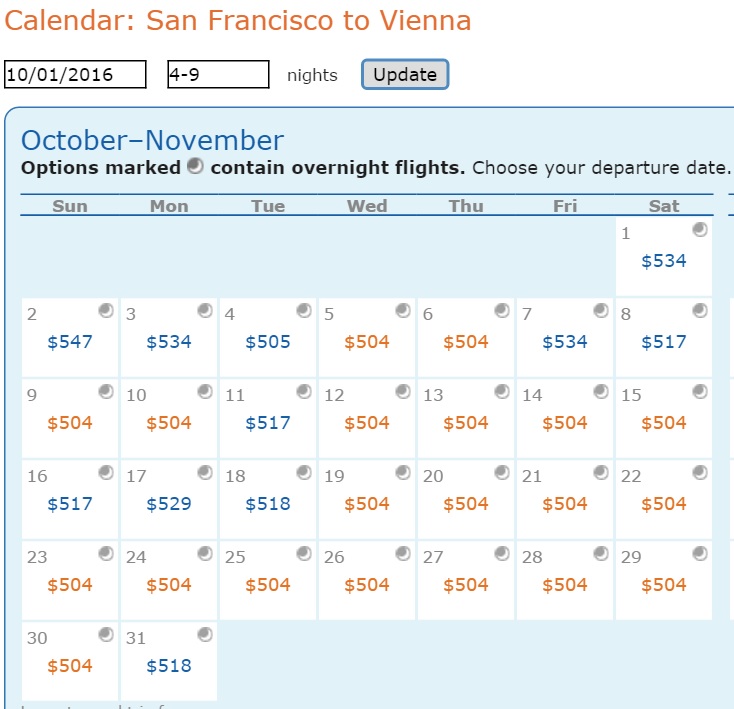I receive compensation for content and many links on this blog. Be aware that websites may earn compensation when a customer clicks on a link, when an application is approved, or when an account is opened. Citibank is an advertising partner of this site, as is American Express, Chase, and Capital One. Any opinions expressed in this post are my own, and have not been reviewed, approved, or endorsed by my advertising partners. I do not write about all credit cards that are available -- instead focusing on miles, points, and cash back (and currencies that can be converted into the same). Terms apply to the offers and benefits listed on this page.
Star Alliance carriers United, Air Canada, and Austrian Airlines have a $439 roundtrip fare between San Francisco and Vienna for October departures. You’ll fly from San Francisco to a United or Air Canada hub where you’ll connect to an Austrian Airlines flight.
A Saturday night stay is required and then you can return when you wish. There’s a $300 change fee as you’d expect with most discounted international tickets.

Vienna Hofburg Imperial Palace at night, Copyright tomas1111 / 123RF Stock Photo
Most booking sites will show you fares starting at $504, for instance here’s an availability calendar from ITA Software:

However airfare metasearch site Momondo will help you find even better pricing than that.


Vienna is great in its own right. You can’t quite do it in a night, or as quickly as you might walk Amsterdam, but you can see highlights on a Before Sunrise tour. (If the video below doesn’t show a preview, just hit play.)
If you don’t fancy Vienna, it’s still a good opportunity because the two European capitals closest to each other are Vienna and Bratislava (Slovakia). Bratislava is a major hub for European low cost flights, and is often sold ‘as’ Vienna by those airlines. So head to Vienna and take off from there as well. It’s a great fare for fall travel!
(HT: Secret Flying)


@Gary:
Are all these airfare sales to Europe – practically daily – causing you to update your priors on the immigration & refugee problems Europe is facing? I can’t find the post(s) right now, but I remember you writing with some disdain in the recent past about fear of “furners” or “xenophobia” or some such irrational motivators. Do you think that the influx of refugees and the multiple attacks the people of Europe are suffering is having an impact on Americans’ willingness to travel there? And do you still view the attendant anti-immigrant feelings as phobias of one sort or another, or as justified concerns?